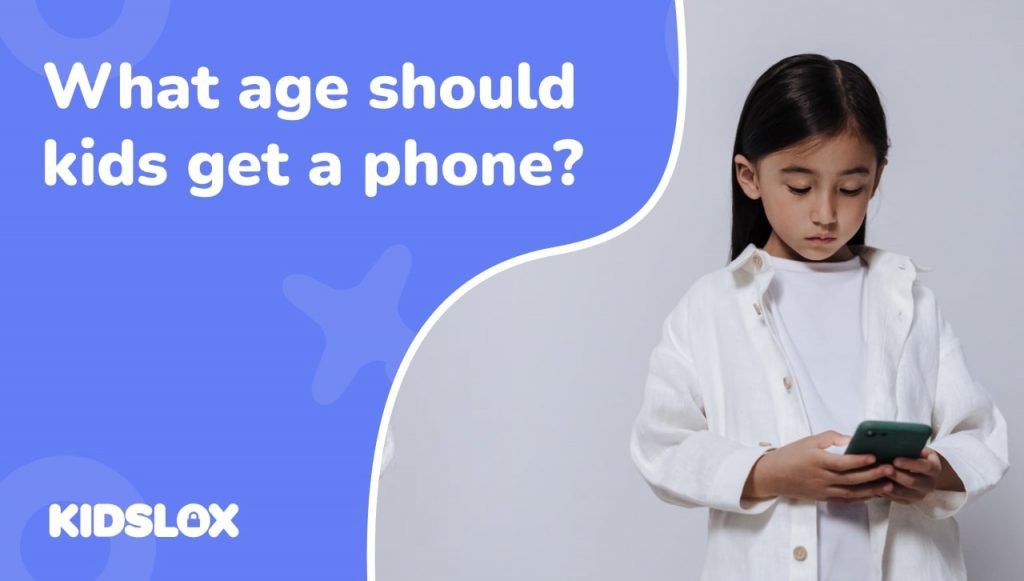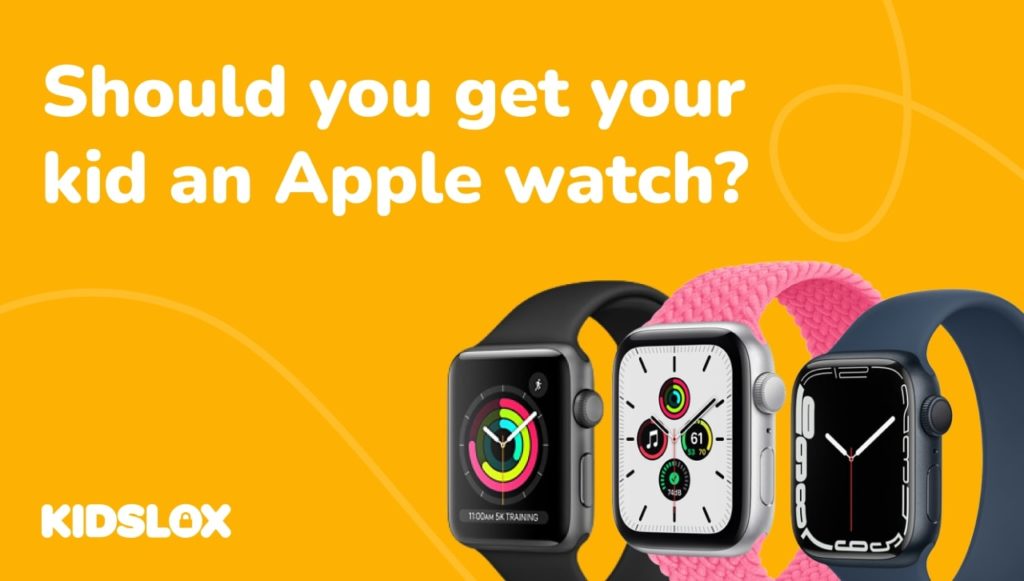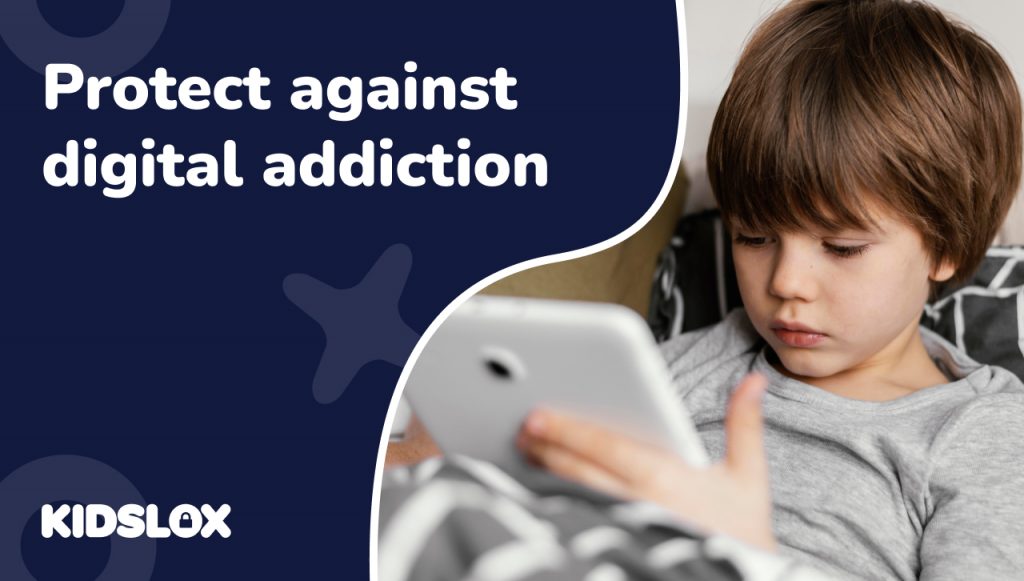It may be hard to believe, but cell phones as we know them have only been around for about two and half decades. In that short time, they’ve gone from a rarity available only to the wealthy to a near-necessity for people of all ages.
While the ubiquity of cell phones is undoubtedly impressive, the way they’ve changed human behavior is truly remarkable. We now use our phones for everything from entertainment to communication to GPS navigation.
Phones have now become an essential part of our lives, and that includes children.
So that begs the question – when should I give my child their first phone?
There is no single definitive answer to this question. Some parents may choose to give their child a phone as early as 10 years old, while others may wait until the child is older.
When making this decision, there are many factors to consider, such as the child’s age, maturity, and responsibility level. Parents and guardians must also consider the types of phones available and the various features and applications each phone offers.
In this article, we are going to take a look at what to consider when making the decision about when to give your child their first phone. We’ll also provide some pros and cons for each age group to help you make the best decision for your family.
Understanding the risks of giving children phones
Before we jump into discussing the age factor, it’s essential to understand the risks involved in giving children phones.
While cell phones offer many benefits, there are also some risks that parents and guardians should be aware of. These risks include:
Internet Access
One of the primary risks associated with giving children phones is internet access.
With a smartphone, children can surf the web, access social media sites, and download apps.
While there are many excellent educational apps available for children, there are also some that are not appropriate for their age group. In addition, many websites contain content that is not appropriate for children.
Digital Addiction
Another risk associated with giving children phones is digital addiction.
Digital addiction is a real and growing problem, especially among young people. According to one study, 50% of teenagers feel they are addicted to their mobile devices.
Signs of digital addiction include:
– Feeling anxious or irritable when not using the phone
– Using the phone more than intended
– Feeling the need to check social media sites constantly
– Neglecting other essential activities in favor of phone use
– Struggling to control phone use
If you notice any of these signs in your child, it’s important to address the issue immediately. There are many resources available to help children and families deal with digital addiction.
Cyberbullying
Another risk of giving children phones is cyberbullying.
Cyberbullying is when someone uses technology to harass, threaten, or embarrass another person. It’s a growing problem, especially among children and teenagers.
Cyberbullying can seriously impact children and teens, causing them to feel isolated, anxious, and depressed. In extreme cases, it can lead to thoughts of suicide.
Expenses
Finally, parents and guardians should also be aware of the expenses associated with giving children phones.
While many phone plans offer unlimited data, there are also some that have limits. Once you exceed your data limit, you will be charged extra fees. In addition, if your child loses or breaks their phone, you will be responsible for the cost of repairs or replacement.
But what about the benefits?
Now that we’ve looked at some of the risks involved in giving children phones let’s take a look at the benefits.
The Benefits of Giving Children Phones
There are many benefits associated with giving children phones. These benefits include:
Safety
One of the most important benefits is safety.
With a phone, your child will always have a way to contact you in an emergency. They can also use their phone to call 911 if they ever find themselves in a dangerous situation.
In addition, many phone apps can help keep your child safe. For example, some apps allow you to track your child’s location at all times.
Some apps allow you to set boundaries for your child. If they leave the designated area, you will be notified immediately.
Communication
Another benefit of giving children phones is improved communication.
With a phone, your child will be able to keep in touch with you throughout the day. They can also use their phone to stay in touch with friends and family.
This can help make life a bit more convenient for you and your child. For example, if your child is going to be late for their after-school activity, they can easily call or text you to let you know.
Access to Information
Another benefit of giving children phones is that they will have access to a wealth of information at their fingertips.
With a few taps on their phone, they can look up the answer to almost any question they have. They can also use their phone to research school projects and homework assignments.
This is a huge benefit, as it can help your child to become a more independent learner.
Entertainment
Finally, phones can also be a great source of entertainment for children.
Many phone apps and games can help to keep your child entertained. In addition, they can use their phone to listen to music, watch movies, and read books.
This can be a great way to keep your child occupied during long car rides or when they’re bored at home. Obviously, the entertainment factor comes with a great deal of responsibility. You will need to monitor your child’s phone use to ensure they are not spending too much time on their phone.
When Should I Give My Child Their First Phone?
Now that we’ve looked at some of the risks and benefits involved in giving children phones, you may be wondering when the right time is to give your child their first phone.
The decision of when to give your child a phone ultimately depends on a number of factors, such as your child’s age, maturity, and responsibility level. Let’s break down each of these factors in more detail.
The Age Factor: When is my child ready for a phone?
One of the first factors to consider when deciding when to give your child a phone is their age.
Many parents choose to give their children phones when they reach middle school or high school. However, some parents may choose to give their child a phone earlier, while others may wait until they are older.
There is no right or wrong answer when it comes to the age factor. It’s essential to consider your child’s individual needs and maturity level when making a decision.
For example, if your child is involved in after-school activities, you may want to consider giving them a phone so they can easily stay in touch with you.
On the other hand, if your child is not very responsible, you may want to wait until they are older before giving them a phone.
The Maturity Factor: Is my child ready for the responsibility?
Another factor to consider when deciding when to give your child a phone is their maturity level.
While some children may be responsible enough to handle a phone at a younger age, others may not be ready. Maturity level is an important factor to consider when making a decision.
Here are some questions you can ask yourself to help determine if your child is ready for the responsibility of a phone:
– Can my child follow the rules and guidelines?
– Is my child able to take care of their belongings?
– Is my child responsible enough to handle money?
– Can my child be trusted not to share personal information with strangers?
– Is my child able to control their emotions and impulses?
If you answered “no” to any of these questions, your child might not be ready for a phone. It may also help determine whether or not your child is ready for a smartphone or a regular phone.
A ten year old, for example, may be ready for a regular phone but not a smartphone. This is because regular phones have fewer features and are less expensive than smartphones.
The Responsibility Factor: Can my child handle a phone?
Similar to the maturity factor, the responsibility factor is also essential to consider when deciding when to give your child a phone.
Many parents look to give their children phones so that they can easily get in touch with them. However, this also means that your child will need to be responsible enough to answer phone calls and texts in a timely manner.
You should also consider whether or not your child is ready to handle the financial responsibility of a phone. You may wish to have them pay for their own phone or a portion of their bill. This can help teach them the value of money and responsibility.
Responsibility is an important skill to learn, and having a phone can help teach children how to be responsible.
Making the Right Choice for Your Family
There is no definitive answer to the question of when a child should get their first phone. Every family is different, and each child is unique.
Fortunately, by considering factors such as age, maturity, and responsibility level, you can make an informed decision about when the time is right for your child to have a phone.
Regardless of the age you decide to give your child access to a phone, here are some tips to help them use their new device responsibly:
Tip 1: Set rules and guidelines for phone usage.
One of the best ways to help your child use their phone responsibly is to set rules and guidelines for usage.
Be sure to discuss your expectations with your child and make sure they understand the consequences of not following the rules.
Some parents may choose to allow their children unlimited access to their phones, while others may limit screen time. It’s important to find what works best for your family.
Tip 2: Monitor your child’s phone usage.
Another way to help ensure your child is using their phone responsibly is to monitor their usage.
Many phones come with parental controls that allow you to set limits on screen time and app usage. You can also view your child’s call and text history to see who they’ve been talking to.
If you don’t feel comfortable monitoring your child’s phone usage, you can always have an honest conversation with them about their phone habits.
Tip 3: Teach your child about cyber safety.
With the rise of the internet, it’s critical to teach your child about cyber safety.
This includes things like not sharing personal information with strangers, not meeting up with people they’ve met online, and being aware of cyberbullying. If children can learn to use the internet safely, they’ll be better equipped to handle a phone.
Tip 4: Model Good Phone Behavior
Lastly, it’s important to model good phone behavior for your children. If you want your children to use their phones responsibly, you need to set a good example.
This means putting away your own phone during family time, not using your phone while driving, and being respectful when using social media.
Children learn by example, so by modeling good phone behavior, you can help ensure your children use their phones responsibly.
Keep Kids Safe with Kidslox
No matter when you give your child a phone, having a powerful parental control solution like Kidslox can help you keep them safe.
Kidslox allows you to monitor your child’s phone usage, set limits on screen time, and block dangerous apps and websites. From blocking explicit content to monitoring device usage, Kidslox gives you the tools you need to help keep your children safe online. Learn more about how you can keep your kids safe with innovative technology today!





